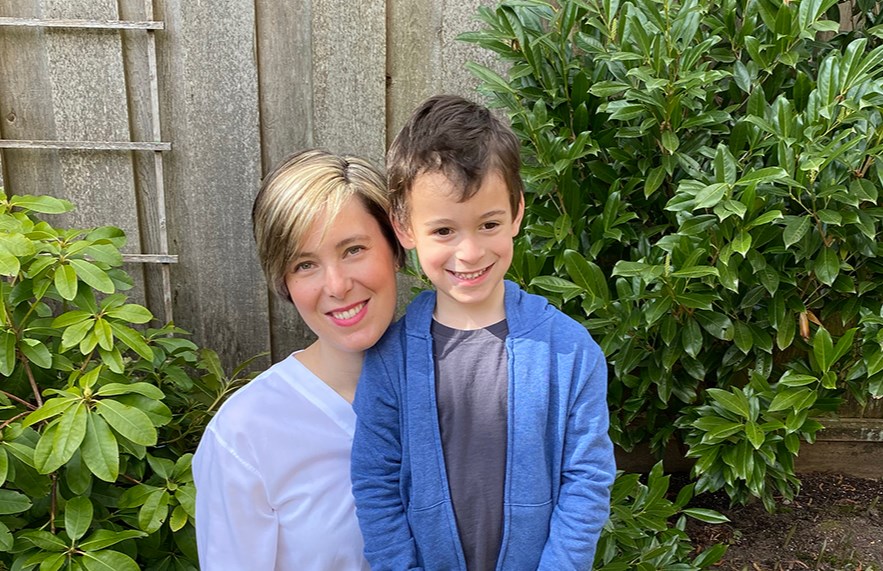Like many Canadians, Kirstin Hepburn suffered a loss of income during the COVID-19 pandemic and is finding it harder to make ends meet.
The Port Coquitlam woman is juggling child care with her mom to keep her family costs down while working to get more graphic design clients. Paying for summer camps and other leisure activities for her young son will be a challenge this year.
Yet despite earning just over the qualifying amount last year, Hepburn isn't eligible for the city’s recently upgraded recreation subsidy.
“I think they could do more with subsidies for families in the lower threshold in 2021,” she told Tri-City News.
To qualify for the city’s Financial Assistance program, applicants must fall under Statistics Canada’s Low Income Cut Off (LICO) threshold, which is $22,260 (after taxes) for a family of two in a city the size of Port Coquitlam.
(A family of for LICO is $34,581 after taxes).
But even with her low income bracket, Hepburn doesn’t qualify, meaning she pays full price for recreation just like someone who makes three times her salary.
SLIDING SCALE WOULD GIVE MORE PEOPLE A FEE BREAK
Hepburn thinks the city should consider a sliding scale that would subsidize fees depending on the income, reducing the subsidy to zero for those in the lowest income bracket.
That way people whose income is extremely low — about 5,000 people in the city — wouldn’t have to pay anything to get their children into camps and other leisure programs while those who make just $100 over would still get a bit of a fee break.
She worries that people in extreme poverty don’t have even enough to cover their portion of the fees without having to cut back on something else important — such as food — while other families on low income wouldn’t qualify.
“We’re probably leaving some people behind as the cost of living skyrockets,” said Hepburn, noting that at $1,500 for a basement suite, PoCo’s rents would eat up most of the income for someone who is living at or below the LICO scale.
She notes that three and four bedrooms in the Fremont area, where she lives, are going for $1 million or more, making Port Coquitlam isn’t the affordable enclave it once was.
“We are living in unprecedented times,” she notes while encouraging PoCo to look at reducing the burden on families when it reviews its recreation subsidies in future.
"I think it would be improved with a sliding scale that would include a more realistic qualifying group."
Coun. Steve Darling said the city will look into the program to see if it is working once it gets the word out about the subsidy program to qualifying families.
“I think the more we get out and let people know this is coming and how to access it is the most important thing.”
The city has $35,000 in the budget to cover the cost of the recreation subsidy but over the years has seen a decline in participation.
It hopes that by increasing financial assistance for children and youth under age 18 to $500 a year (up from $200 previously) to be applied toward camps and programs at a discount of 75% will get more people to participate.
Qualifying recipients can also get a free One City Pass which provides free entry to drop-in swimming, skating, fitness, racquetball/squash and all-age gym sports.
THREE WAYS TO MEASURE LOW-INCOME, CITY SAYS MUNICIPALITIES USE LICO
Families who need further help to cover their portion of costs can also apply to the Canadian Tire Jumpstart Program. Information is posted on the Financial Assistance webpage.
Lori Bowie, director of recreation, stated in an email that LICO is typically used by municipalities but Port Coquitlam will “evaluate to see if the program is meeting our community needs.”
There are other ways to measure poverty, however, including the Low Income Measure, promoted by some advocacy groups, where poverty levels are as much as 20% higher than the LICO scale ($28,884 for a family of two, $40,848 for a family of four).
Another measure is the Market Basket Measure (MBM), used by the federal government for programs. It is based on a basket of goods, including housing.
For a family of four the MBM is $44,046, significantly higher than the $34,481 LICO income for four people for a city the size of Port Coquitlam.



